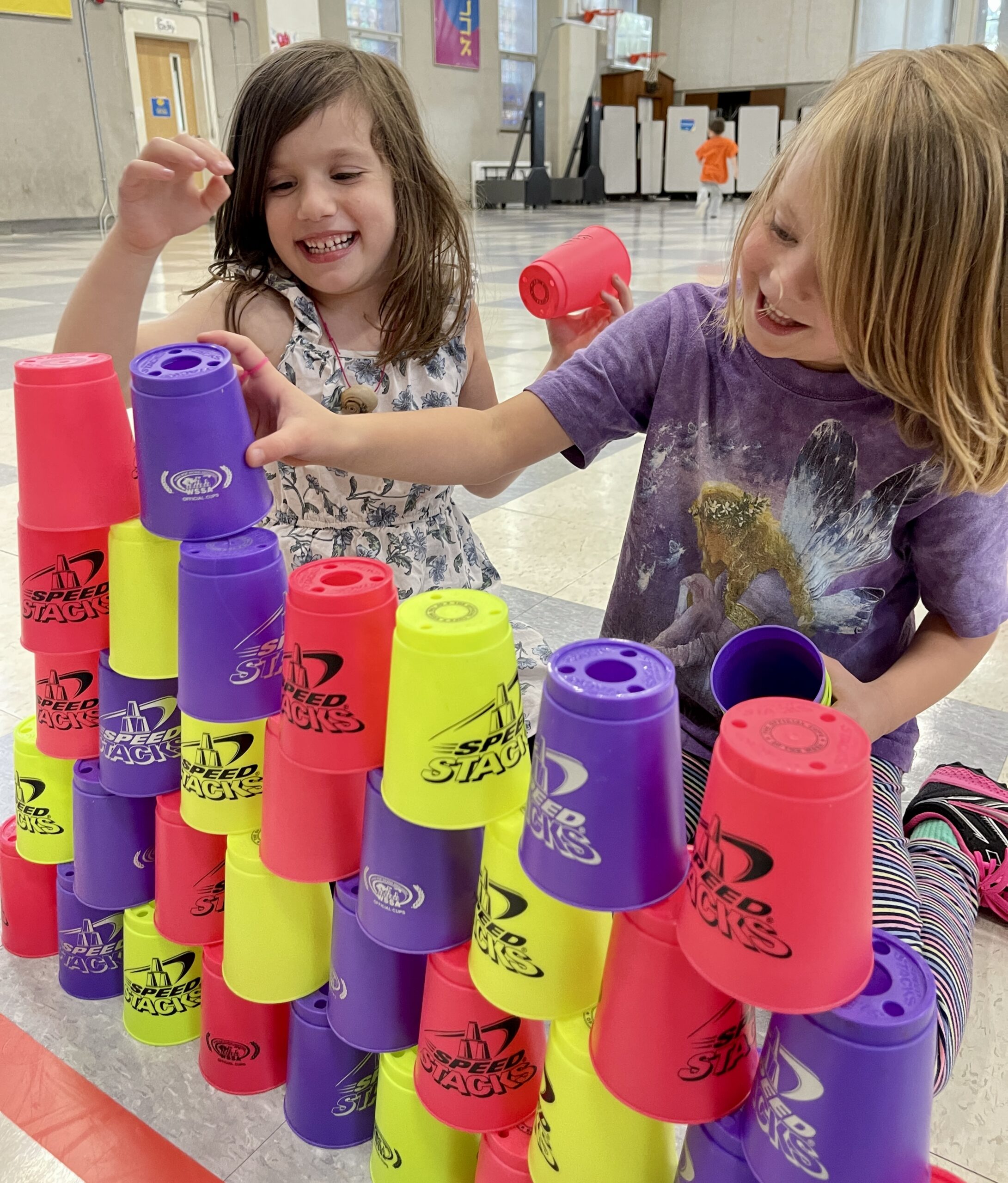Nitzanim and Ilanot Curriculum Philosophy at JCDSRI:
A Holistic Approach to Early Childhood Learning
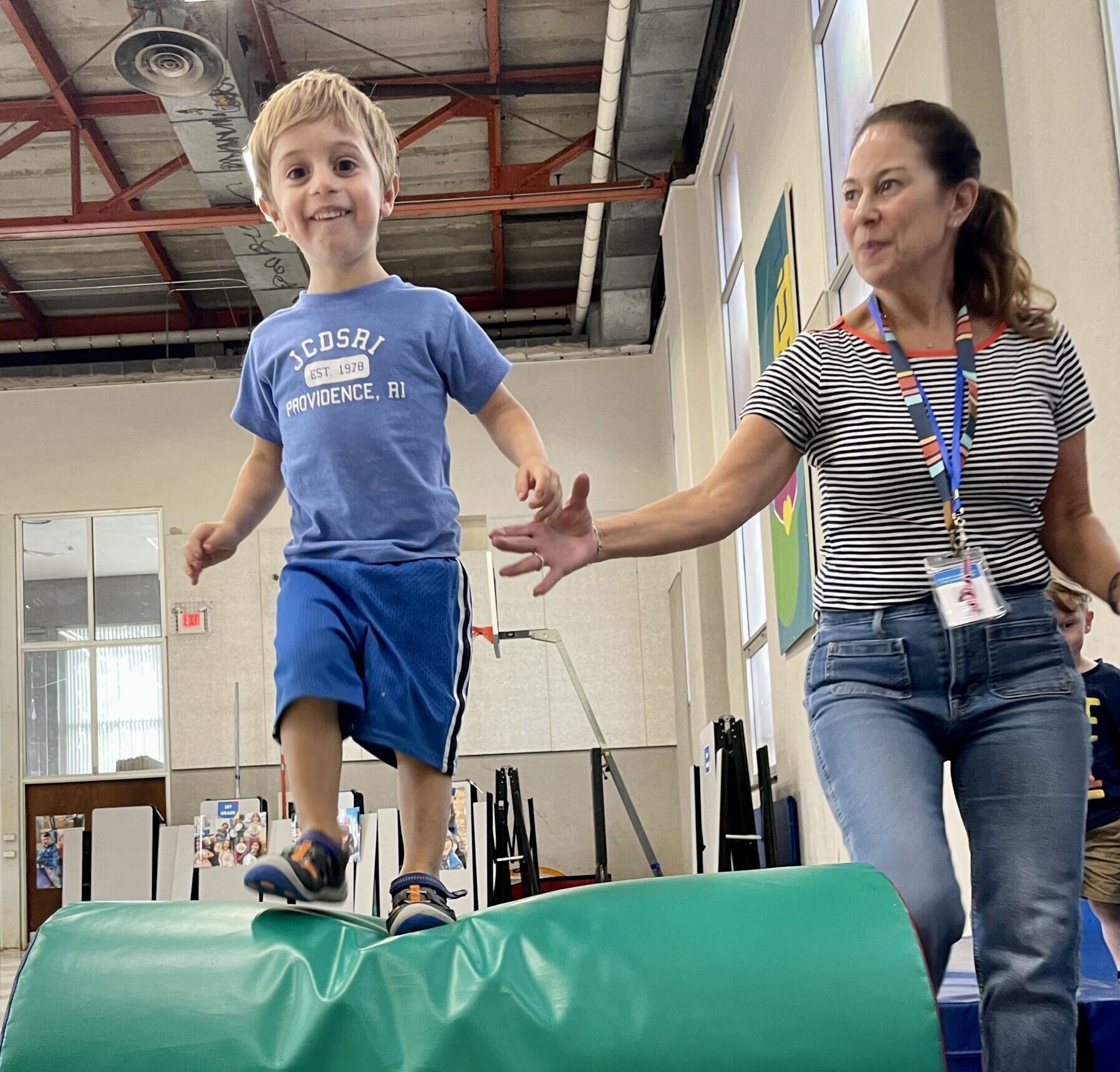 At the Jewish Community Day School of Rhode Island (JCDSRI), we believe that early childhood is a time of immense creativity, curiosity, and growth. Our Nitzanim (3-year-old) and Ilanot (4-year-old) students are at a stage in their development where they are eager to explore the world around them, build new relationships, and express themselves in a variety of ways. The curriculum for these age groups is designed to provide the freedom, structure, and guidance necessary to foster both intellectual and social-emotional growth. Rooted in the Rhode Island Early Learning and Development Standards, our approach is enriched by Jewish values, Universal Design for Learning (UDL), and Social-Emotional Learning (SEL), creating an inclusive and supportive environment for every child.
At the Jewish Community Day School of Rhode Island (JCDSRI), we believe that early childhood is a time of immense creativity, curiosity, and growth. Our Nitzanim (3-year-old) and Ilanot (4-year-old) students are at a stage in their development where they are eager to explore the world around them, build new relationships, and express themselves in a variety of ways. The curriculum for these age groups is designed to provide the freedom, structure, and guidance necessary to foster both intellectual and social-emotional growth. Rooted in the Rhode Island Early Learning and Development Standards, our approach is enriched by Jewish values, Universal Design for Learning (UDL), and Social-Emotional Learning (SEL), creating an inclusive and supportive environment for every child.
Curricular Philosophy: A Holistic, Integrated Approach
Our early childhood curriculum offers a well-rounded, developmentally appropriate education that encompasses personal, social, physical, cognitive, and creative expression. At JCDSRI, we design learning experiences that honor the whole child, supporting the development of essential life skills, while nurturing the intellectual, emotional, and social needs of each student.
Guiding Principles:
- Jewish Values: Our curriculum is deeply rooted in the Jewish values of Chesed (kindness), Kavod (respect), Tzedek (justice), Kehillah (community), and Achrayut (responsibility). These values permeate everything we do, helping students learn how to navigate relationships, practice empathy, and contribute to their communities.
- Universal Design for Learning (UDL): We embrace UDL principles to provide flexible learning experiences that meet the diverse needs of all learners, ensuring that every child has access to the curriculum in ways that resonate with them. By offering multiple means of representation, engagement, and expression, we create a rich, inclusive classroom environment.
- Social-Emotional Learning (SEL): Developing social and emotional skills is foundational to our early childhood program. We focus on fostering positive relationships, self-regulation, conflict resolution, and empathy, empowering children to become confident, compassionate individuals.
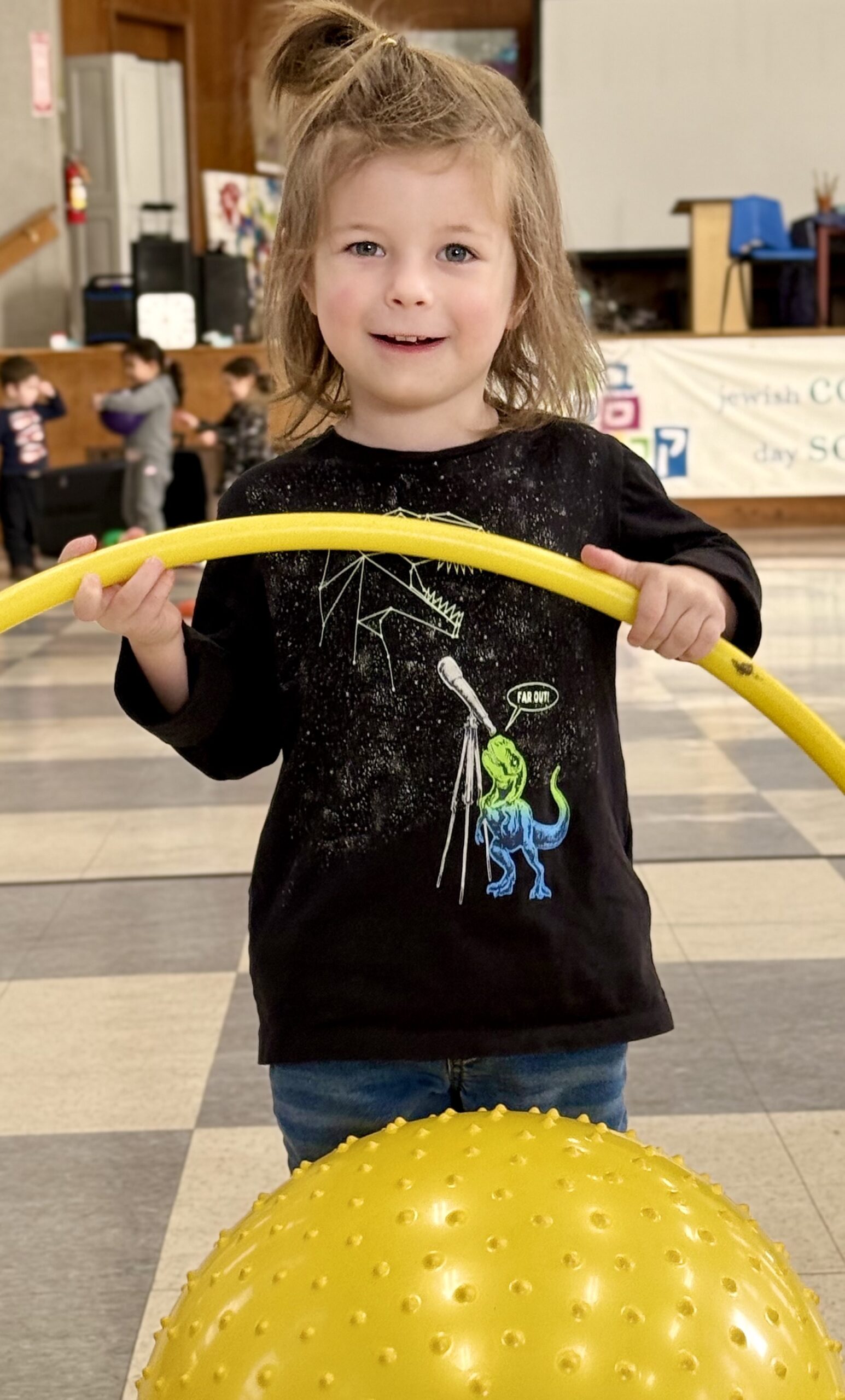 Exploration, Play, and Curiosity-Driven Learning
Exploration, Play, and Curiosity-Driven Learning
Young children are naturally curious and engaged in learning through exploration and play. In Nitzanim and Ilanot, we believe in the power of student-directed exploration and teacher-guided play as tools for developing critical thinking, problem-solving, and creativity.
Key Elements of Learning:
- Balance of Structure and Freedom: We strike a careful balance between structured learning experiences, such as circle time and group activities, and unstructured play-based learning, where children can explore their own interests, ask questions, and make discoveries.
- Outdoor Exploration: Daily outdoor play is essential, even in inclement weather, to build physical coordination, engage the senses, and enhance emotional well-being. Outdoor environments serve as a classroom for curiosity, allowing students to investigate the natural world.
- Inquiry-Based Investigations: Teachers serve as facilitators, guiding students through investigations based on their questions and observations. This approach encourages independent thinking, perseverance, and collaboration.
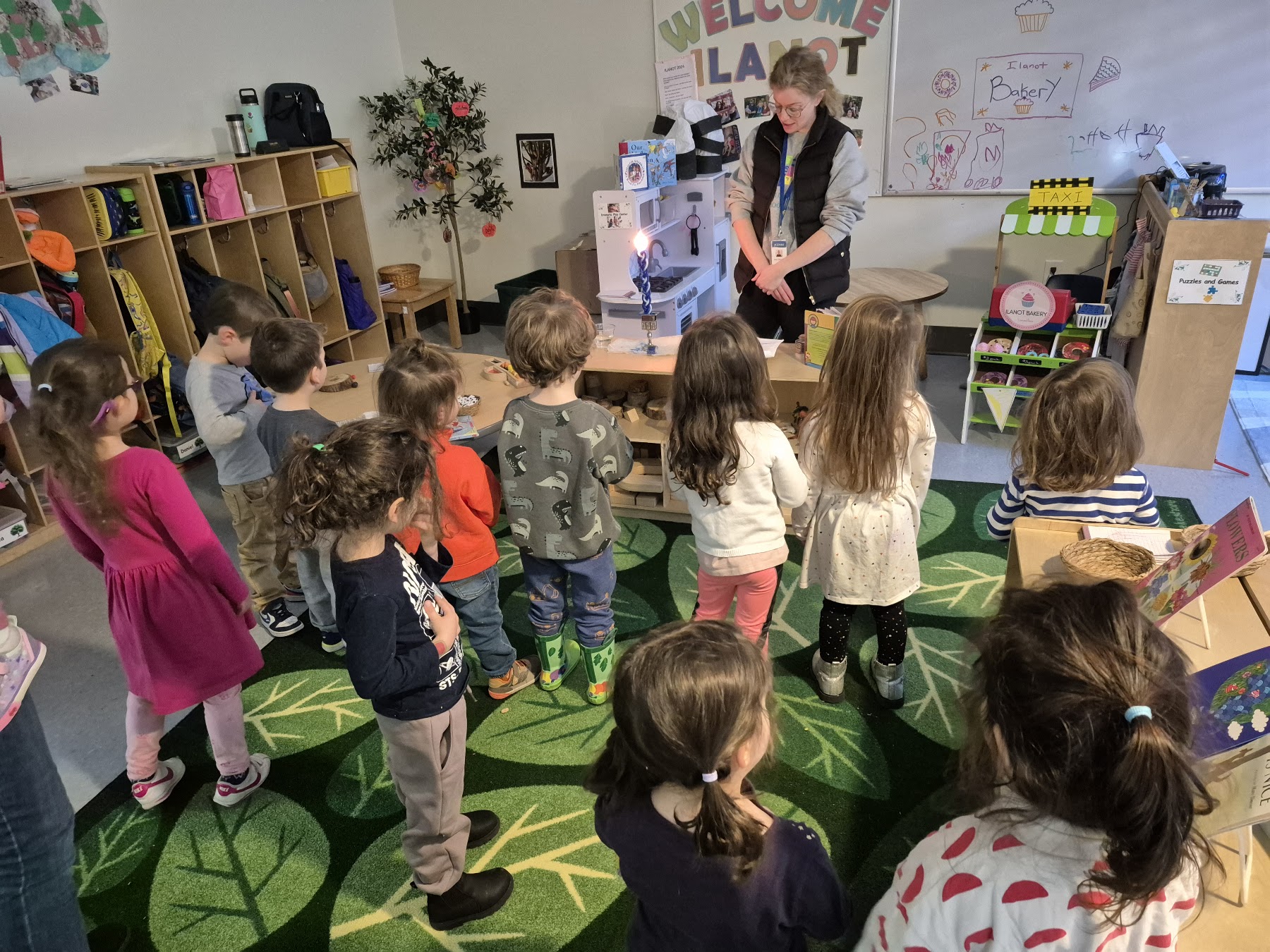 Yahadut (Jewish Learning) and Hebrew Instruction
Yahadut (Jewish Learning) and Hebrew Instruction
Judaism is seamlessly integrated into every aspect of our curriculum. Through interactive projects, storytelling, songs, and holiday celebrations, our students gain a deep understanding of Jewish tradition, values, and history.
Key Elements of Yahadut:
- Weekly Parasha: Students learn about the weekly Torah portion (Parsaha), exploring the stories and lessons within them.
- Shabbat and Holidays: Jewish holidays, such as Rosh Hashanah, Hanukkah, and Pesach, are celebrated with hands-on activities, storytelling, and art.
- Hebrew Language: Through songs, games, and interactive activities, students begin to learn Hebrew, connecting language to the values and traditions of their Jewish heritage.
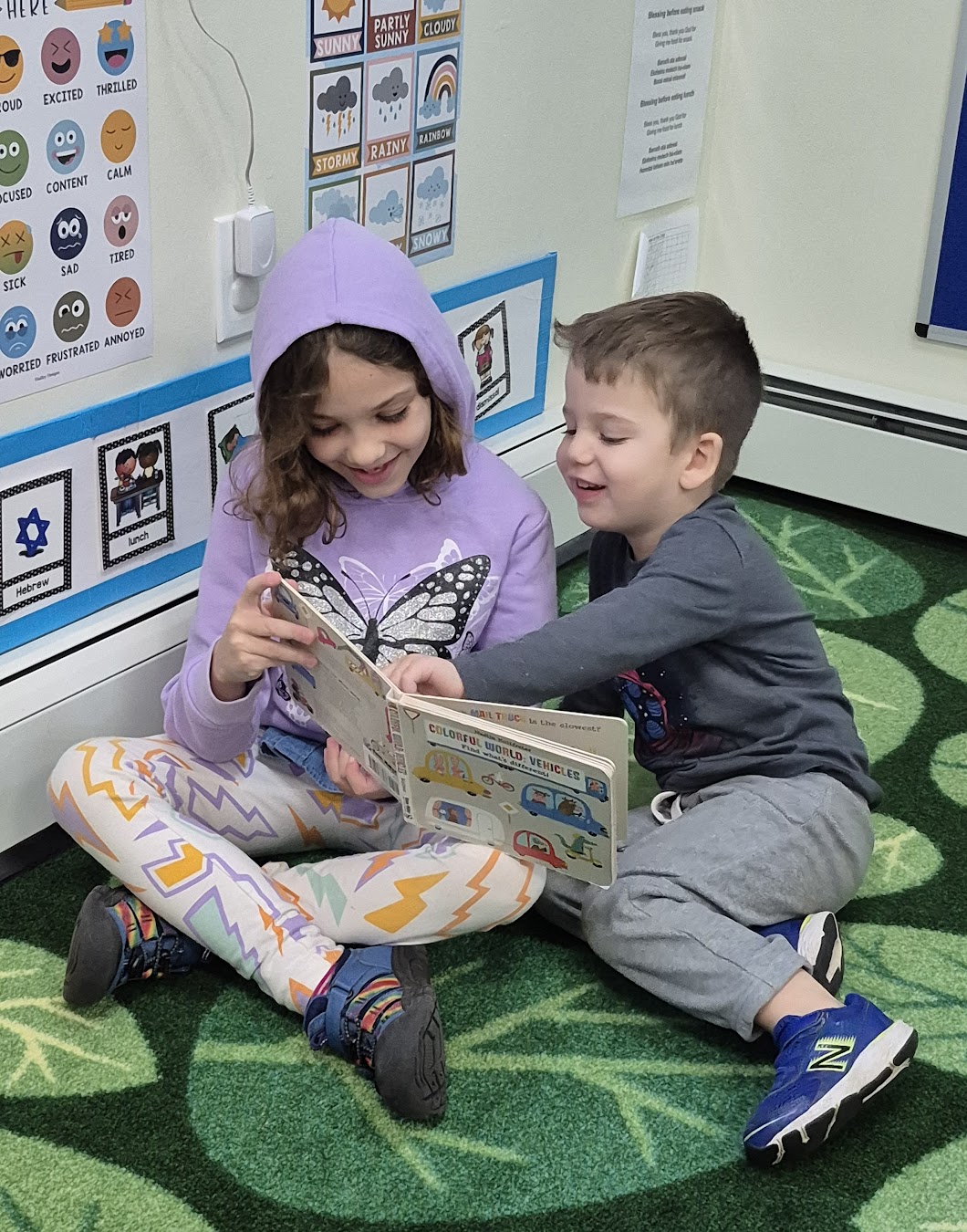 Literacy: Building the Foundations of Language and Communication
Literacy: Building the Foundations of Language and Communication
In Nitzanim and Ilanot, literacy development begins with fostering a love of language and storytelling. Children are introduced to reading and writing through fun, interactive activities that build their vocabulary, phonemic awareness, and early literacy skills.
Key Elements of Literacy Instruction:
- Rich Literature: Daily exposure to a wide range of books, both in English and Hebrew, encourages language acquisition and expands children’s worldviews. Through read-alouds, children experience diverse stories, which reflect both their own identities and introduce them to new cultures and perspectives.
- Phonemic Awareness: Using songs, chants, and games, children develop phonemic awareness, recognizing the sounds of language, rhyming patterns, and letter-sound relationships.
- Early Writing and Drawing: Children are encouraged to express themselves through drawing, oral storytelling, and early writing. Even before they can write words, children learn to communicate their ideas through pictures and symbols, setting the foundation for later reading and writing success.
- Handwriting: In Ilanot, handwriting instruction is guided by the Learning Without Tears program, focusing on proper letter formation, pencil grip, and control.
Mathematics: Understanding the World through Numbers
Our math program in Nitzanim and Ilanot emphasizes real-world problem-solving and hands-on exploration of mathematical concepts. Mathematics is woven into the daily routine, and children engage with math in meaningful, play-based contexts.
Key Elements of Mathematical Development:
- Counting and Number Sense: Children develop a strong sense of numbers through activities like counting, sorting, and matching. The concept of one-to-one correspondence is reinforced as they engage in hands-on activities with manipulatives.
- Patterns, Shapes, and Measurement: Through play, children explore concepts like patterns, shapes, and measurement. Teachers provide opportunities to observe and create patterns in nature, art, and everyday life.
- Mathematical Thinking: Students are encouraged to think like mathematicians by asking questions, making predictions, and explaining their reasoning. Through exploratory play and guided activities, they develop logical thinking and problem-solving skills.
Nature as Teacher (NaT): Learning through the Natural World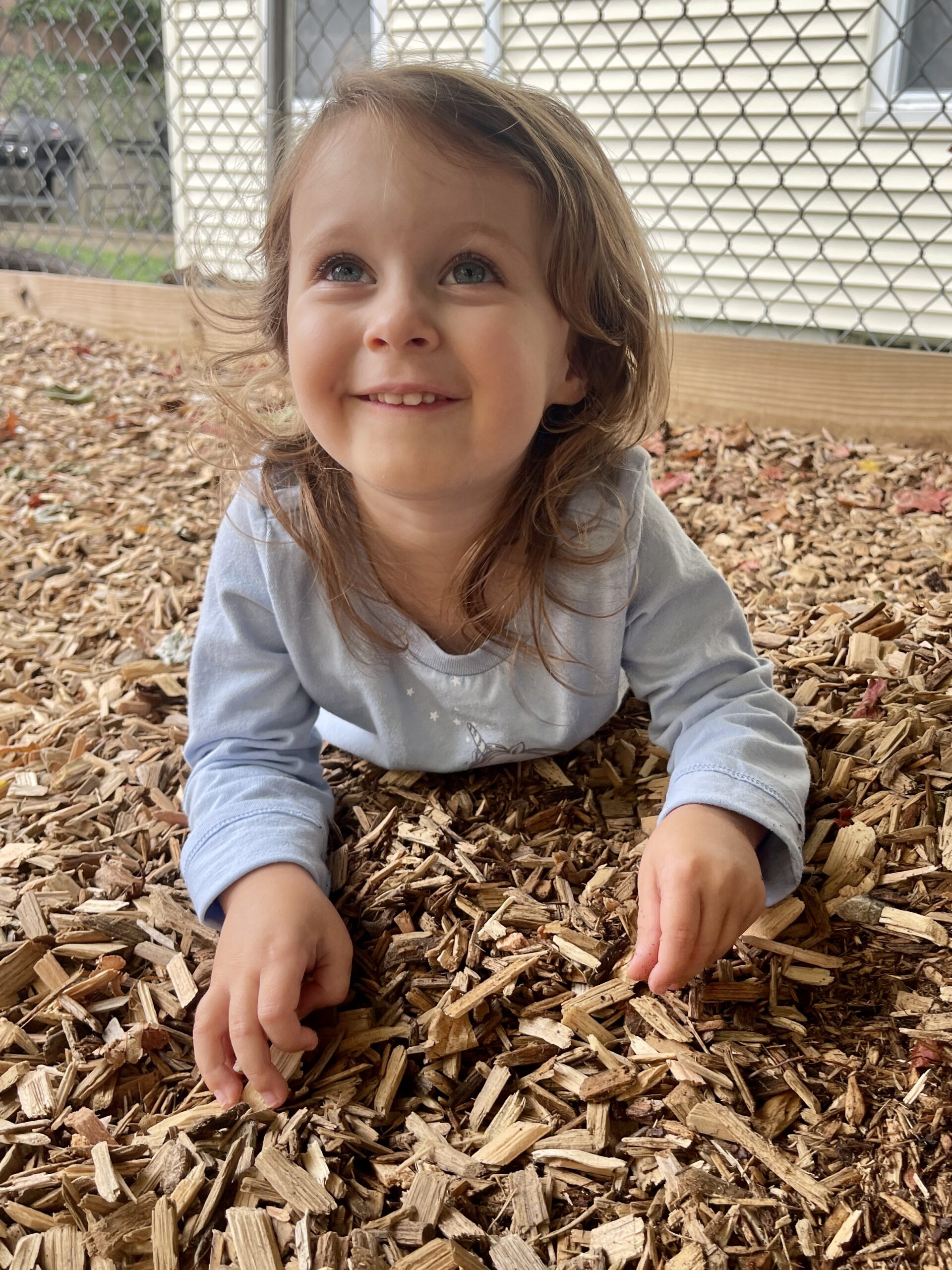
At JCDSRI, we believe that the natural world is a powerful teacher. The Nature as Teacher (NaT) program immerses children in outdoor experiences that connect them with their environment while reinforcing key scientific concepts.
Key Elements of Nature as Teacher:
- Exploration: Students observe and experiment with nature as a dynamic learning environment. Whether investigating plant growth, weather patterns, or animal behavior, the outdoors becomes an interactive classroom.
- Integration with Jewish Values: Our students also learn about Judaism’s strong connection to nature, celebrating agricultural holidays, like Sukkot, and understanding Jewish environmental teachings such as bal tashchit (the principle of not wasting resources).
- Hands-On Learning: NaT offers hands-on science experiences, such as gardening and exploring the life cycle of plants and animals, allowing children to witness real-world applications of their learning.
Center-Based Learning: Developing Key Skills Through Play
In both Nitzanim and Ilanot, students spend time each day in center-based learning. These centers offer opportunities for independent exploration and help build important cognitive, social, and emotional skills.
Benefits of Center-Based Learning:
- Oral Language Development: Centers allow children to practice communication skills, sharing ideas, negotiating, and engaging in role play.
- Self-Regulation: By having the autonomy to choose their centers, children practice self-regulation as they manage their time, focus on tasks, and resolve conflicts.
- Social Skills: Working in small groups or independently fosters collaboration, sharing, and problem-solving. Children develop important social skills like empathy, patience, and respect.
A Supportive, Caring Community
At JCDSRI, we believe that early childhood education is not just about academics—it’s about creating a nurturing environment where every child feels valued, supported, and empowered. By integrating Jewish values, Social-Emotional Learning, and Universal Design for Learning, we ensure that our students grow not only as learners but also as compassionate and thoughtful individuals.
In Nitzanim and Ilanot, we embrace each child’s unique learning journey, providing opportunities for exploration, creativity, and self-expression. Through hands-on play, thoughtful instruction, and a focus on emotional growth, we prepare our youngest learners to become confident, curious, and kind members of our school community.
